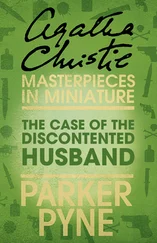“Thing is, I’m just not sure what I’d do there.”
“But there’s so much here,” her sister said. “How about golf? Low impact. Easy on the soft tissue.”
What she knew of golf was limited to the clubs, nylon pullovers and spiked shoes donated to the thrift store. The clubs and shoes never made it to the shelves because they held too much potential as weapons, and the pullovers were neither waterproof nor warm. Bernice said she wasn’t interested in golf.
“It isn’t the only game in town. There are plenty of churches out here you know, good ones, modern architecture, nice and big and brand-new. You could get involved. And besides, we’d be abroad most of the time and you’d have the whole place to yourself.”
She saw an image of herself alone, riding a bus to a mall to spend her modest Woodward’s pension on little bits of plastic from the dollar store. She could at least bring some of her collection, couldn’t she?
“How about storage space,” she said. “In your home? I’d have to bring at least some of my more essential things, I just can’t be rid of them.”
“Oh sure, there’s plenty of room, we could conceal a midsized army in our closets, but you know, Brian and I have discussed this, and we figured you could get new things, Bernice, here. You could decorate … or redecorate, rid yourself of clutter, you know? Simplify.”
To her, sitting alone in a room of foreign things was anything but simple.
“I can’t.”
“You know you’re as stubborn as Dad ever was,” her sister said, attempting to sound like that was something she found endearing.
Their father had been an insurance adjustor and part-time inventor who often began his frequent dinner-table lessons with “We now know …,” as if speaking on behalf of humanity’s collective knowledge. The girls competed for his attention, and in pop quizzes or races he pitted sister against sister. Bernice, the eldest, usually won, sending her sister into pillow-screaming rages in her room. “Sore loser,” her father would whisper, nudging Bernice’s ribs as they cuddled up in front of the TV for a delicious hour past her bedtime. As teenagers, she and Wanda had established an unspoken truce, a pact of mutual aloofness, choosing vastly dissimilar hobbies and pursuits to ensure no comparisons were possible. He’d died in 1993, the same year Woodward’s shut its doors, after spending two days with his pelvis snapped in half from a fall on the concrete at the foot of the basement stairs of their childhood home. This just a month after refusing to move into the care facility Wanda had arranged. Her mentioning him now pained Bernice. She’d pushed for him to stay at home, flush with that old feeling of father-daughter collusion.
When they hung up, Bernice lifted her head from her hands and took notice of the spoon rack, the way it already seemed drab, siphoned of newness. She had to go up close to single out the Manitoba spoon, and saw it looked just as sad as any other. The next day was welfare day and all her customers were off tearing themselves up and throwing themselves in the garbage. As early as tomorrow they’d start trickling in, half-naked and deranged, with blackened fingertips and lacerated faces, their eyes swirling tempests of remorse and paranoia, back for more of what she’d already given them.
Bernice took advantage of the lull to accomplish tasks she’d been putting off. She priced an entire box of kitchen items, arranged them neatly and sensibly on shelves she’d already wiped down, then went on to organize the sprawling women’s tops section by colour — all of this before lunch. She couldn’t sort clothes by size anymore because labels couldn’t be trusted. Today’s mediums fit like the extra larges of yesterday. Were people getting bigger? If so, how big would they get? It had to be all the healthy food they ate now, these people who’d never known war, hardship or famine. Worse, their giant garments just weren’t made with the care they once were. The seams gave way, the shapes pinched, bagged out and went misshapen. And the materials were of such poor quality, thick and cardboardy, quickly pilled or faded after a handful of washes. She liked old clothes best, they were made to last. Woodward’s even had their own clothing line, most of it pretty good quality, for the price, and sometimes these too were donated. Today she found a burnt-orange acrylic cardigan she swore she’d once owned. These discoveries usually brought a good dose of nostalgia, but today it left her feeling old, left behind.
“Bernice?” A woman with short electrified hair carrying a cardboard box was looking at her as if peering through fogged glass. “It’s Carol.” She set the box down, touching her generously exposed, liverspotted chest as if to prove also to herself she was real. “We sold shoes together.”
Bernice smoothed her skirt and took the hand of her old friend, thankful her work that morning had left the store looking its very best.
“I can’t believe it!” Carol said, cupping her forehead with her hand, her ring a dazzle of tiny diamonds.
Carol asked what she’d been up to all this time, and Bernice offered a condensed history of her thrift store.
“It must feel so good to give something back,” Carol said, and Bernice was tickled by a modest pride.
“Kids?” she said, as Bernice knew she would.
Bernice shook her head. “No time. This place keeps me so busy, anyhow. Just keeping it going takes all the energy I’ve got. Shame it’s in such poor shape today, though, not like the old shoe department, that’s for sure.”
“Well, I think it looks fantastic.” Carol said. “You still with, what’s his name, Gustavo?”
She couldn’t bear the idea of seeing pity register in her old friend’s face, so she shook her head again and smiled in what she felt was a cheerful way, tossing her hand in the air as if she didn’t need it either. “Oh, we split years ago!”
Carol hung for a moment speechless, then rescued her. “Got rid of him, did you? Atta girl!”
Bernice found herself in a featureless territory somewhere between laughter and tears and turned to pluck from the floor a dress that had slipped its hanger.
“Well, Pete and I are still together, just barely. No I’m kidding. He’s in the car. We’re in town because my dad passed and I couldn’t bear to just throw his things away, you know, so I thought what better than if people could put them to good use.” “Oh dear, I’m sorry.”
Carol said it was okay. Then came a honk from outside. “That’s him,” she said, embarrassed but still smiling. “I’d better get moving.”
Bernice didn’t feel up to speaking with Pete, given the possibility of more questions, so she sent Tuan out to help bring the rest of the things inside. They returned with boxes obscuring their vision and Bernice held the door for them. “More where this came from,” Carol said. “A real packrat he was.”
When the work was done, Carol said, “Well, I’d better run, we’ve got to get to the crematorium before they burn the wrong old guy. We live in Kelowna now,” she added, as if as an afterthought. “Look me up if you’re ever out that way.” She handed Bernice a square of sharp cardboard.
Later, while rummaging through Carol’s boxes — mostly large new Y-fronts and neatly folded men’s perma-press slacks — Bernice recalled the shoe-fitting fluoroscope they’d used in the shoe department. It was a contraption the size of a deep freeze, into which the customers, usually children because they liked it best, would stick their feet, snug inside the shoe they were trying on. Protruding upwards from the machine were three viewing stations like the periscopes Bernice had seen in submarine movies, so that the mother, along with Bernice, could “scientifically verify” the fit of her child’s shoe. Don’t buy your shoes blindly! warned a sign hung from the ceiling over the contraption. The kids squealed at their ghostly toes wiggling, the incredible complexity of their own feet something they’d never suspected.
Читать дальше












